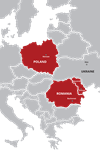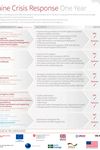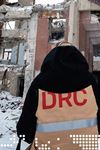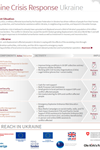
Romania
DRC has been working in Romania since early 2022 as part of its Ukraine crisis response. Emergency aid is provided at key locations in the country – primarily at border crossing points and in major refugee-hosting cities – where DRC supports humanitarian assistance to Ukrainian refugees and the communities hosting them.
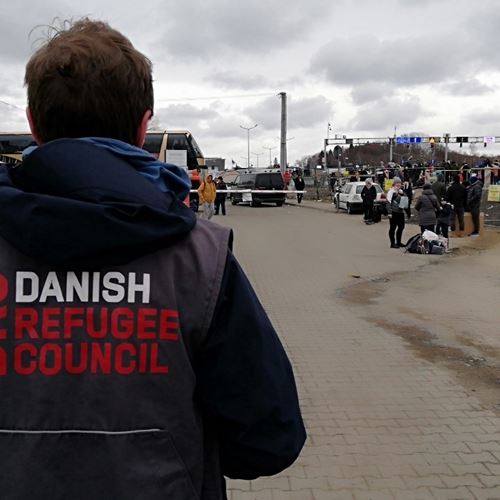
Displacement trends
Source: | UNHCR
Displacement Trends
Definitions
EDPs: Refugees under UNHCR’s mandate
IDPs: Internally displaced persons
Asylum seekers: People whose claims for refugee status have not yet been determined
Stateless: People not considered as nationals by any State
HST: People living in Host Communities
OIP: Others in need of International Protection
OOC: Others of Concern
Forecast
DRC forecasts are based on a machine learning tool that has been developed to predict forced displacement (IDPs, refugees and asylum seekers) at the national level 1-3 years into the future.
Why we are there
Gaps revolve around access to information on services, legal stay and onward movement, compounded by the wide geographical distribution of refugees.
There is a crucial lack of data beyond general refugee figures hampering the clear understanding of protection risks, needs and vulnerabilities. This is exacerbated by the fact that nearly all refugees from Ukraine are women and children. In addition to needs among refugees in Romania, vulnerabilities among members of the Roma population are unidentified and under-addressed.
DRC works to provide support and address legal needs around civil documentation – such as birth and death certificates, ID card, pensions, child custody etc. - as well as in relation to questions around Housing, Land & Property, and Education rights – factors that may influence prospects of return to areas of origin.
What we do
DRC arrived in Romania in March 2022 and has since then partnered with several local organisations for the implementation of protection activities and some provision of food and Multi-Purpose Cash Assistance (MPCA) targeting Ukrainian refugees in Bucharest, Suceava and several border locations.
Protection activities include the establishment of a network of interpreters in border and urban locations, trainings for interpreters and community facilitators on humanitarian and protection principles, information provision and referrals, top-up vouchers for extremely vulnerable households, and psychosocial support, including recreational activities.
Working in collaboration with

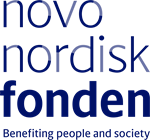
Novo Nordisk Foundation

Ole Kirk’s Fond
Contact

Helene
Lassen
Country Director for Poland, Moldova & Romania

